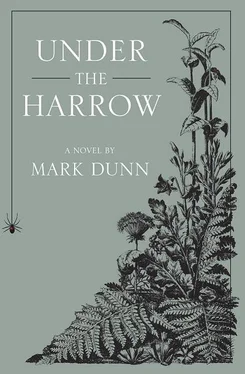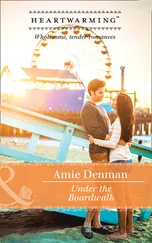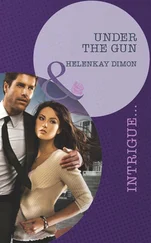We strolled along the walk toward the promenade that gave a lovely prospect of the indolently meandering Thames. I could tell that Muntle was dangling upon the proverbial horns of that dilemma which argued for Pupker’s privacy, yet gave equal weight to civic curiosity. Here was an officer of the Dell whose sworn responsibility to provide for the safety and well-being of the general population militated against the right to suspicious concealment and secretiveness on the part of any single member of that same population. Pupker was a man with an excellent standing before the Petit-Parliament, but such a position of patronage and favour didn’t give him leave to operate his business under deliberate clandestine coverture. Or did it?
“Consider as well the treatment of the daughter by each of the other three members of that family,” I added. “Although she was never well-favoured, they now regard her as if she is a veritable pariah amongst them.”
Muntle did, in fact, consider this unfortunate truth in thoughtful silence as we gained the promenade and began to amble upon its weathered wooden planks. There were small skiffs upon the river, and even a punt or two in the middle where the channel had been only shallowly dredged. Along the opposite, reedier eastern bank trooped a tagrag and bobtail bunch from the Scadger clan — one of the six Scadger brothers — leading his brood to the Pupker Mews.
Muntle stopped to register the scene. “Would that they all went so willingly to their new home,” he mused aloud. “That appears to be Harry — the second oldest of that family. He’s always been the most sensible of the tribe. He knows a good thing when he sees it.”
As the family drew nearer that point which offered our best vantage, I saw that Muntle had identified the brother correctly; there was Harry and there was his wife Matilda, each drest in cast-off and multiply-mended clothing, the husband in an old worn and faded blue camlet coat that did not befit the warm season, dragging a large gunnysack, which, no doubt, contained most of his family’s paltry possessions. Matilda wore what certainly represented her “finest”: a tawdry squeezed bonnet and shawl over a castoff pinafore and smock, both threadbare and depending nearly in tassels. Behind the parents trailed their five children of various ages and sizes, the oldest, perhaps thirteen, a girl of well-nigh-skeletal frame and a near bewigged death-head sitting upon hunched, brachiate shoulders. The girl, whose name I could not recall, had a scrofulous-like cough, which completed the pitiable scene.
I had met this girl and each of her brothers and sisters, as well as the mother, when I had sat down several months earlier in the jerry-cobbled, apricot-tree-shaded wooden structure that had formerly served as a poor excuse for a domicile. I had sought and received upon that visit an interview with the father for the purpose of placing an appeal in the Dingley Delver on his behalf and on behalf of the other members of his familial clan who lived in similar impoverished circumstances nearby. That winter had been especially severe, but the Scadger brothers were too proud to ask anything of their valley neighbours beyond the small income they derived from their tinkering, and the women from the sale of their plaited baskets (baskets which Pupker and his ilk bought for mils and turned to great profit through trade with the Outlanders for goods of significantly greater value). I did not ask for charity from my Delver readers, but instead encouraged an increase in the patronage of Scadger vendibles during these hard times, so that the youngest and most vulnerable of the clan wouldn’t starve or freeze to death.
Although Harry Scadger had acknowledged my kindness with a pledge to eternal friendship, his brothers did not. Moreover, they permitted their pride instead to feed resentment and suspicion of my motives — motives that nonetheless resulted in a sharp increase in business, and the opportunity to purchase blankets and quartern loafs and hard sausage, and to see every adult and child in their band — even the several consumptives (for Harry’s oldest girl was not alone in being stricken by this affliction)— brought safely through the fell season.
Harry was different from his brothers in many ways, and it touched me to see that he didn’t plan to resist the inevitability of eviction from the apricot grove. Muntle and I followed the family with our gaze until they had rounded a corner and disappeared from view. Others on our side of the river were observing them as well, with expressions that ranged from the mildly curious to the clearly indignant. There were a good many Milltowners who lived on the western side of the Thames who, I predicted, would not countenance a Scadger invasion. Yet the Mews, being quartered in the town’s poorer East End, district gave some protection, for there was little cause for the Scadgers to cross the river and “pollute” the finer neighbourhoods of Milltown with their impecunious presence, except under the most exceptional circumstances.
For my part, I regarded the finer neighbourhoods of my town with an opposite species of disdain. That in a land so narrowly circumscribed, so small and potentially insignificant when set against the rest of the immense world, one should exhibit the same snobbery and contempt for the less fortunate who hobbled and begged amongst us as was evinced in the works of Mr. D., the same derision and loathing of the lower classes that appeared to make a mockery of the mission of our Lord Jesus Christ— this was a conundrum which irked and nettled me upon a daily basis. I gained no satisfaction from society with any of those lofty and high-toned Milltown Bashaws who rolled perambulators under fringed parasols, who twirled their silver-tipped canes, who rode in private cabriolets and fine chariots-and-four, who wore silk turbans and bonnet-caps trimmed with little damask roses and high-crowned hats upon their swelled heads, who turned up their noses or avoided looking upon all those who did not, could not do or have these things on account of limited means. It utterly bewildered me, and though I kept my feelings largely to myself, at times those feelings must have shewed themselves upon my face in the burning cheek or the lip-chewing mow. Perhaps it was just such a grimace which at that moment drew my friend Muntle’s eye and turned his own lips oppositewise into a cryptic grin.
After holding the look for a long moment, he said simply, “You care far too much for your own good.”
“What do you mean by that?” I rejoined.
“You’re a sensipath. I’m a sensipath. It will be our undoing, you know. ‘Sympathise — do not sensipathise.’ This is what my mother once said to me in my boyhood. I was standing before her, one hand cupping a crippled, dying baby bird that had fallen from its nest. With my free hand I wiped away tears that I could not bring under controul. And my mother said, ‘You may feel sorry for the little bird, son. But you must do so only to such extent that you do not become one with the bird. For if you become the bird, you cripple yourself, as well.’ These were hard words to hear, Trimmers, but I think sometimes that you and I would be better off if we heeded them a little more often.”
“I hadn’t thought of things in that way.”
“Our collective mortal existence is congested with pain and inequities of circumstance. It is our natural calling as sensipaths to attempt to change and make better those things that are conducive to change. But those things that cannot be improved, we must not permit to destroy us. Although having just imparted those kernels of wisdom, I must say that I’ve spent most of my life trying not to let my sensipathic nature get the better of me, and I have not always achieved success. I wish you greater luck, but in the mean time I feel compelled to remind you that what you feel is largely the product of a different set of chemicals in the brain than, let us say, that fœtid stew that swirls inside the craniums of the Montague Pupkers of our world.”
Читать дальше












